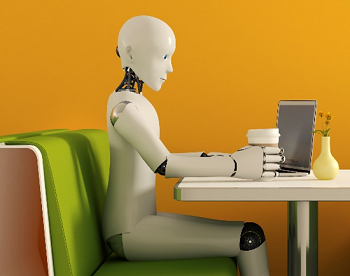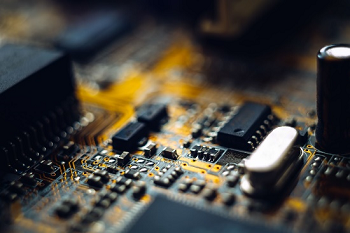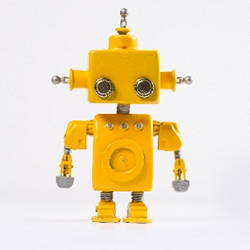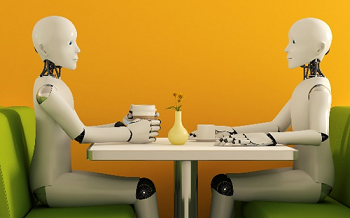A colleague asked a great question at a recent Navigating the Future event, which I answered with “I have no answer for you today.” To my defence, I was not feeling well at the time, had a cracking headache, and was therefore trying to hide in the audience. But … the reason I had no actionable answer was that I have been mulling over ChatGPT and OpenAI for weeks, balancing a deep-rooted fear with respect for artificial intelligence.

Fear as I am from the HAL9000 and Terminator era where SkyNet eventually took over control of our precious planet. The day machines develop self-awareness we are in serious trouble.

Respect as I programmed on the Intel 80186 processor, which had a 16-bit data width capable of addressing a phenomenal 65,536 bytes of memory. The magnitude of processing, memory space, and artificial intelligence we enjoy today makes engineers like a tad antiquated.

“I'm old but I'm not obsolete." Terminator, aka Arnold Schwarzenegger
I loathe the dumb chat bots

We have all experienced it. You spend hours reading static web pages from your favourite online marketplace, looking for ways to contact anyone to get help on a missing or damaged shipment. Eventually you are chatting to a machine that starts with the friendly “Hi, how can I help you?” After agonising and wasteful exchanges of information, the chat bot refers you back to the same pages you spend hours reading.
Having a conversation with an intelligent bot sound appealing

What excites me about artificial intelligence is that we can turn the dialog with the machine into a meaningful conversation, making it possible for the machine to continuously learn, ask clarification questions, and investigate and formulate a detailed response in the background. Multi, continuous, repetitive, and context switching tasking is no problem for our binary companions.
I dream of a common engineering bot that can be the friendly onboarding buddy, an engineer’s patient wingman, and the first point contact for all technical and operational support. If anyone wants to raise this as an idea for the upcoming InnoFest / Hackathon, then you have both my vote and support!
We will have an uphill battle to convince our legal, freedom of information and protection of privacy act, and especially our security team, but having a conversation with an intelligent bot makes it all worth it.
AI <> Humanoid
While many are scared that machines will take over our planet, we can rest assured that a machine will never be able to replace a human. Machines will never be able to demonstrate empathy or passion.
I hope that artificial intelligence is based in Azimov’s Laws of robotics
- The robot shall not harm human or, by inaction allow a human to come to harm.
- The robot shall obey any instructions given to it by humans.
- The robot shall avoid actions or situations which could cause it to come to harm itself.
Let me ask my son, Thorsten who studied psychology, to review my post and share his thoughts on ChatGPT, OpenAI, and the rise of artificial intelligence. Handing the keyboard to T.
Closing thoughts by (T)horsten
As Willy said, a machine will never be able to replace a human. Given that statement, I prompted ChatGPT with the following question: “Do you have empathy?”
This is the response I got: "As an artificial intelligence language model, I do not have emotions or feelings in the same way that humans do. While I can recognize and understand emotions based on the input I receive, I do not have the capacity to experience empathy or any other emotions. My primary function is to process information and provide responses based on that information.”
So, what separates machines from humans? Humans have historically been compared to other beings as superior in intelligence, language, culture, technology, and self-awareness. AI models overshadow humans in intelligence, language, and technology, but cannot compensate in areas of culture and self-awareness. Self-awareness is the pivotal aspect that separates humans from other beings, including machines. It allows us to be aware of ourselves, others and have the ability to reflect on our own thoughts and feelings. These feelings drive the understanding humans have of the world, and the reality we create within it.
What does this mean? If thinking about this in a rather simplistic way, is that for a machine to produce an output, it requires an initial input, which is ultimately driven by human emotions.
While I believe AI models are progressively taking over the world and can be an intimidating force to accept, it cannot replace humans as a whole. A common understanding in Psychology is that we cannot predict human behaviour with absolute surety, because at the core of our beings, every human being is different. Human beings are reactive, mainly driven by emotions.
AI models are already relevant in human society, what is important is that we recognize the limitations of these machines. Humans do have weaknesses that are fundamental to emotions, such as being irrational. A machine or so called AI-model, will never be irrational and rather just produce answers that are statistically driven by human input, which is still based on emotions.
